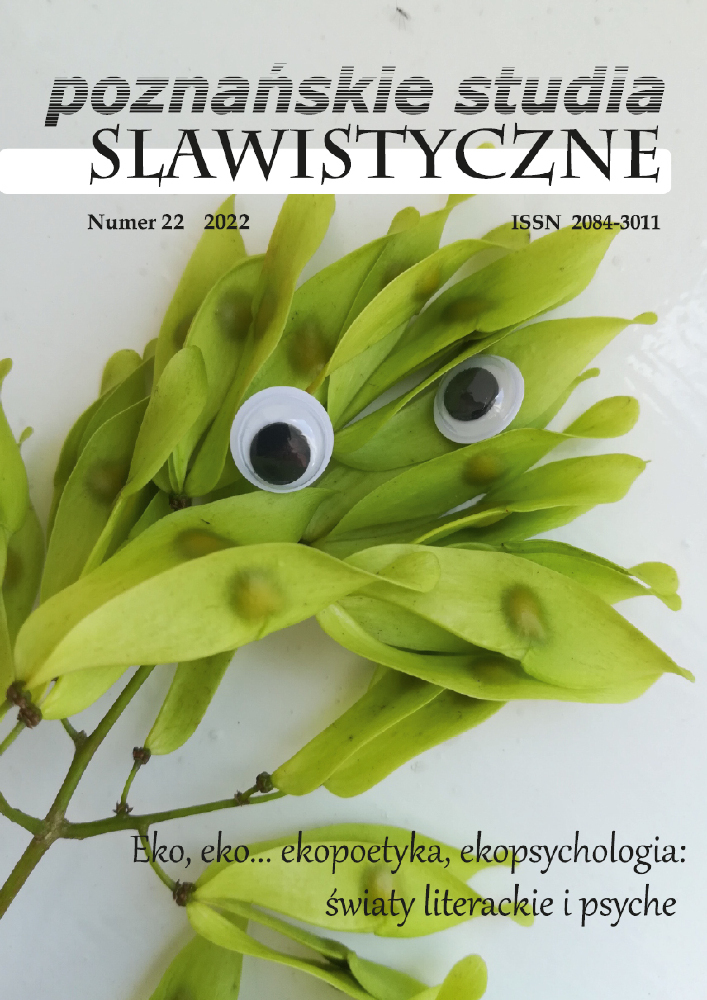No. 22 (2022)
Thematic special issue "Eco, eco… ecopoetics, ecopsychology: literature and psyche" has been developed as link between ecological literature and ecopsychology. AS E. O. Wilson, in his book Reconciliation: The Uniqueness of Knowledge, pointed out, the desire for reconciliation is found in all-new academic disciplines that seek to return to the ecology. Thus, ecopsychology was initiated in 1992 by Theodore Roszak in his book The Voice of the Earth, which explores the relationship between human beings and the natural world through ecological and psychological principles and seeks to develop ways to expand the emotional connection between individuals and the natural world by establishing and developing a sustainable way of life and removing alienation from nature.
Ecological literature and ecopoetics are concepts on the edge or areas of contact between development, creation of literary works with a perspective of poetics and ecological efforts in the Anthropocene towards syntagma “our Earth house” or as conveniently noted by Jonathan Skinner, editor of Ecopoetics - ecopoetics is a creation of home. Ecopoetics has been expanding in various ways from Anthropocenic literature through ecophenomenology, ecocriticism, and ecomelancholia, while ecological literature provides a space for different interpretations and analyses of the interpenetration of words, art, ecology, and nature.
Within this topic, editors try to connect “word” and “psyche” (studies will include ecopoetics, environmental and ecological literature, and ecopsychology) in the context of a pandemic (2020-2021) which will fundamentally change our relationship to natural-cultural contact zones, including posthumanism and transhumanism. These concepts are open to interpretation within various theoretical directions and bonds of the human and the world-more-than-human, so it is possible to analyse different aspects of the relationship to eco ties and separations within literature and other subdisciplines such as cultural botany, technologies, androids and cyborgs and the post pandemic world of the Anthropocene and Wastocene defined by Marco Armiero. In this issue, we invite the authors to analyse mentioned terms within the Slavic literature.
The title Eco, eco (Eko, eko) has been synonym to legendary children's book by Hrvoje Hitrec, the abbreviation of the academic journal Economic and Ecohistory (Ekonomska i ekohistorija) and Tajči Čekada's performance Eko / eko - human milk, the only human-specific milk.
